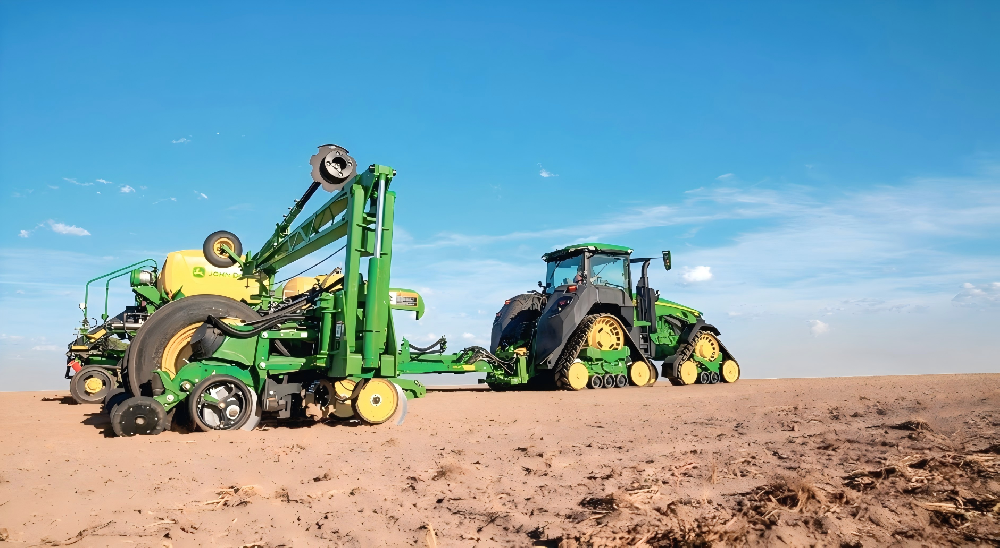hydraulics invented agriculture

The invention of hydraulics has been a catalytic force in revolutionizing agriculture. Hydraulic systems have transformed the way farm operations are carried out, offering immense opportunities for advancement while also presenting certain challenges.
Hydraulic control valves are the brains of hydraulic systems. They precisely regulate the flow and direction of hydraulic fluid within the system. In agricultural machinery such as tractors and harvesters, these valves enable smooth and controlled movements of various components. For instance, in a tractor's front - end loader, the hydraulic control valves allow the operator to accurately raise, lower, and tilt the loader bucket. This precision is crucial for tasks like loading and transporting heavy materials like bales of hay. The ability to finely control the hydraulic fluid ensures that operations are carried out efficiently and with minimal waste of power.
Hydraulic pumps are the heart of the hydraulic system. They generate the pressure required to drive the entire hydraulic circuit. These pumps transform mechanical power from the engine into hydraulic power, creating the high - pressure fluid flow necessary for actuating various hydraulic components. In irrigation systems, hydraulic pumps power the mechanisms that control water distribution. They enable the movement of large irrigation booms and sprinkler systems, ensuring that water is delivered evenly and efficiently across vast fields. The development of more powerful and efficient hydraulic pumps has allowed for the handling of heavier loads and more complex machinery operations. Modern tractors equipped with advanced hydraulic pumps can operate multiple hydraulic - powered implements simultaneously, increasing the versatility and productivity of the equipment.
Hydraulic cylinders, or hydraulic oil cylinders, are the actuators that convert hydraulic energy into linear mechanical motion. They provide the pushing and pulling forces needed for a wide range of agricultural tasks. In plowing operations, hydraulic cylinders lift and lower the plow blades into the soil. Their robust construction and ability to generate substantial force make them ideal for tilling tough and rocky soils. Grain harvesters utilize hydraulic cylinders to control the opening and closing of the harvesting headers and to drive the augers that transport the harvested grain. The precise and powerful movements provided by hydraulic cylinders have significantly improved the efficiency and effectiveness of planting, harvesting, and tillage operations.
The opportunities brought by hydraulic systems to agriculture are vast. They have enabled the development of larger and more powerful agricultural machinery. This has led to increased farm productivity, as farmers can cover larger areas in less time. Hydraulic systems have also enhanced the precision of farming operations. With the ability to accurately control the depth of planting, the application of fertilizers, and the cutting height of crops, farmers can optimize their yields and reduce resource waste. Additionally, hydraulic systems have improved the working conditions for farmers. The smooth and controlled operation of machinery reduces physical strain and fatigue.
However, there are also challenges associated with hydraulic systems in agriculture. One significant challenge is the maintenance of hydraulic components. The hydraulic control valves, pumps, and cylinders are complex pieces of machinery that require regular inspection and servicing. Contamination of hydraulic fluid can lead to valve malfunctions, pump wear, and cylinder failures. Farmers need to be well - trained in hydraulic system maintenance to ensure the reliable operation of their equipment.
Another challenge is the cost of hydraulic systems. High - performance hydraulic components can be expensive to purchase and replace. Smaller farms may struggle to afford the latest hydraulic - powered machinery, potentially creating a disparity in agricultural productivity between different farming operations. Environmental concerns also arise with hydraulic systems. Hydraulic fluid leaks can contaminate soil and water sources, posing risks to the environment and crop quality. Proper handling and disposal of hydraulic fluids are essential to minimize these environmental impacts.
Despite these challenges, the benefits of hydraulic systems in agriculture continue to drive innovation and development. Ongoing research focuses on improving the efficiency, reliability, and environmental - friendliness of hydraulic components. As technology advances, hydraulic systems are likely to play an even more crucial role in meeting the growing demands of global agriculture, helping to feed an increasing population while optimizing resource utilization.